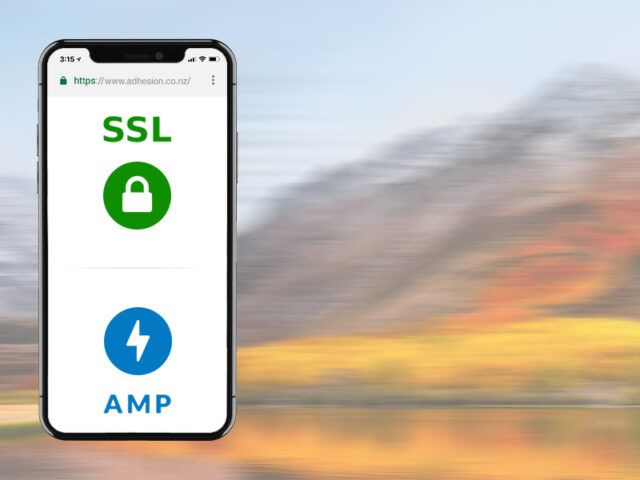Updated: Apr 28, 2025
Author: Vivienne Wang

Based on current trends, we have summarised below key digital marketing and online advertising priorities for small and medium businesses in New Zealand for 2025.
There are a number of key priorities for SEO in 2025 that you need to be aware of.
Mobile-first indexing is no longer just a trend—it's the standard. Google has fully transitioned to a mobile-centric indexing process, emphasizing the importance of mobile optimization.
Be aware that if your website runs a cut down content version for mobile, then your indexing and rankings will likely be impacted. If your website isn't fully responsive across all devices, including mobile, tablets, and desktops, it's time to upgrade! A mobile-friendly website is essential for maintaining and improving your search engine rankings.
In New Zealand, mobile browsing continues to dominate, with analytics showing that over 70% of B2C website traffic comes from mobile devices. Ensuring your website is optimized for mobile is not just a recommendation; it's a necessity for success in the digital landscape.

Mobile performance remains a crucial factor in Google's search ranking algorithm. Websites with poor mobile page load speeds are likely to see a negative impact on their search rankings. Ensuring your website's load performance is rated as "good" is essential for providing an optimal user experience and maintaining visibility in search results.
To assess your website's mobile performance, use Google's updated Mobile-Friendly Test tool. This tool provides insights into how your site performs on mobile devices and offers suggestions for improvement.
Google also supports the use of AMP (Accelerated Mobile Pages) delivery of websites. This is an alternative html form of delivery, which loads pages at much faster speeds than standard html. A number of the more common platforms (WordPress, Squarespace etc) have plugins available to make AMP easier to implement.
If you have a high percentage of mobile traffic, then implementing AMP could be advantageous. Talk to your web developer for more information.
In addition to speed, mobile usability is a key factor in Google's ranking criteria. You should also check that the mobile version of your website meets Google’s usability standards by using their Mobile Usability Test.
We also recommend that you run your own internal usability tests and also to invite other users to give you feedback.
Security continues to be a priority in 2025, and running your website on a secure HTTPS certificate is essential. HTTPS not only protects user data but also provides a slight ranking advantage in search results. As of now, the majority of websites in search results are HTTPS-enabled. If you haven't upgraded yet, now is the time to do so.
When transitioning to HTTPS, it's important to manage SEO considerations carefully to avoid disruptions. Talk to your web developer about a secure certificate. There are SEO issues that need to be managed when upgrading to https – see our guideline article.

In Dec 2017, Google increased the organic snippet length. This is the description associated with your organic listing and the content of which is normally drawn from your meta description.
The snippet length has doubled in size and now accommodates between 250 and 300 characters (incl spaces). This provides a great opportunity to write new meta descriptions which are more informative and compelling to searchers. Achieving higher organic click through rates through better snippets, can lead to improved rankings.
Structured data is used by Google in organic results to enable special search result features and enhancements to be delivered within the results such as rich snippets, rich cards, carousels, knowledge panels, etc.
To see this in practice, do a Google search for “chocolate cake recipe”
Websites can use structured data to enhance their search results by making them more visually appealing and providing additional information.
Structured data is not a ranking factor in itself, but the results will likely increase click-through rates (CTR) and drive more traffic and this can lead to improved rankings.
With Google’s increased focus on enhancing search results, website owners should be looking at their best opportunity to leverage structured data features.
Structured snippets are now also available in AdWords ad copy and can be utilised to show more information than what is normally available through a standard ad format.
It’s a great idea to review, edit and update your web content, particularly for key organic pages. Run an organic landing-page report in Google Analytics (last 12mths compared to previous 12mths) to identify those pages with declining traffic volumes that need a content edit and refresh.
Consider your best opportunity to create and publish new content that will likely be discovered in search and or that is ideal for amplifying out through your social media channels. The web is becoming more and more visual and your content efforts shouldn’t be limited to only copy and should include photos, images and video content.
Think of your website as the front shop to your business and therefore a channel to communicate and to reach prospective customers. Consider what problems they are trying to resolve and what information they are looking for and then produce the content to satisfy those quests. Read our article on content marketing.
We increasingly use search in a localised way and also as a key on the go, mobile tool that we use daily on our phones. Those businesses with local audiences need to be on top of their local SEO to remain competitive in search.
Key priorities should be to ensure that your Google My Business listing(s) is up to date, optimised and regularly managed. New features such as weekly posting on your listing should be utilised.
Your website should support your local targeting with correct addressing and phone number information. List your business on local business directories and seek out opportunities for listings on local referring business websites.
Read our article on how GMB works.
Voice search continues to grow, with projections indicating that it will account for a significant portion of searches in 2025. Optimize for voice search by focusing on natural language and long-tail keywords. Understand the context in which voice search is used—often on-the-go or when multitasking—and tailor your content to meet these needs.
Businesses and marketers need to consider the context of their opportunity in relation to voice search and how they plan to take advantage of this significant shift in search behaviour.
For many businesses, AdWords management remains the top advertising initiative to target relevant searchers and to generate enquiries and sales. AdWords is continuing to get more competitive in many segments and click costs are on the increase.
Google has launched new AdWords features that leverage Google’s AI platform including sophisticated bidding strategy and conversion optimisation options.
Managing AdWords campaigns is getting more complex over time and requires competent and expert management. If you are managing campaigns in-house, then either ensure your staff training is up to date or alternatively considering engaging an expert AdWords management agency.
If you have an online store, then you should consider running Google Shopping ads if you are not already.
These ads are visually different and include a thumbnail image of the product and are appearing at the very top of search results.
Setting up a Google Shopping ad campaign is done via the AdWords platform and requires setting up a merchant account with Google. Some of the more popular ecommerce website platforms like Shopify have modules that integrate easily with the Google merchant account.
The rapid development of the FB advertising platform has changed the online advertising landscape over the last few years. The platform has become the top advertising channel on mobiles and offers advertisers a powerful online broadcast style medium that is highly visual in nature and one that can effectively target tightly defined audience segments.
In response to criticism over advertising polices, FB has recently announced that it will dial back the portion of ads showing in the FB feed.
We believe that advertising in FB will continue to be very productive through 2025 and we would encourage businesses to consider Facebook advertising as highly complementary to their AdWords advertising. Remarketing in Facebook is often a very productive initiative to start with.
Over the last year we have seen integrated features with popular email marketing platforms like Klaviyo allowing database targeting in Facebook in parallel to email campaigns.
Facebook has launched campaign targeting through Messenger with good initial results and achieving more user attention than that typically associated with receiving an email.
Reviews published on Google and Facebook are becoming more important and very influential in the buying decisions of customers.
For example, who doesn’t use Google reviews to find out what the locals say about which restaurants are the best in the city you are visiting. And increasingly this applies to all types of services and products and is particularly relevant to those businesses with younger customer audiences.
Google places a lot of effort to scrutinise and ensure that reviews are genuine and that the public can trust in them.
More and more we are also seeing reviews featured in structured data in Google organic results.
If your business strategy is founded on building a reputation based on excellent product or service, then you should have a plan to solicit and leverage Google and Facebook reviews. Read our blog article on how Google Reviews work.
Contact Adhesion if you would like assistance with your digital marketing and online advertising strategy.
Our reputation goes hand-in-hand with our team’s dedication to best practice. As a registered Premier Google Partner, our team refreshes our certifications every 12 months — A tradition we started over a decade ago. To stay ahead, we are always looking forward to upcoming certifications for online advertising, website development and search engine optimisation.
Blog • Terms • Privacy • 110 Mount Eden Rd, Mount Eden, Auckland 1024 • Mon–Fri 8:30am–5pm
© 2007-2025 Adhesion